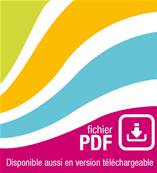 The link between those three works is gloom.The beautiful but sad poem Toi rossignol by Anne Perrier, is a poetic evocation of death. This little poem has inspired a simple and much expressive music.Pas de patrie is a work where nostalgia and spleen are combined.Mais lors dans le vent, surrealist poetry, is nearly a Burlesque, of an acid and colorful comic, which is to be sung quickly with lightness.Alexandre RYDIN The link between those three works is gloom.The beautiful but sad poem Toi rossignol by Anne Perrier, is a poetic evocation of death. This little poem has inspired a simple and much expressive music.Pas de patrie is a work where nostalgia and spleen are combined.Mais lors dans le vent, surrealist poetry, is nearly a Burlesque, of an acid and colorful comic, which is to be sung quickly with lightness.Alexandre RYDIN
|